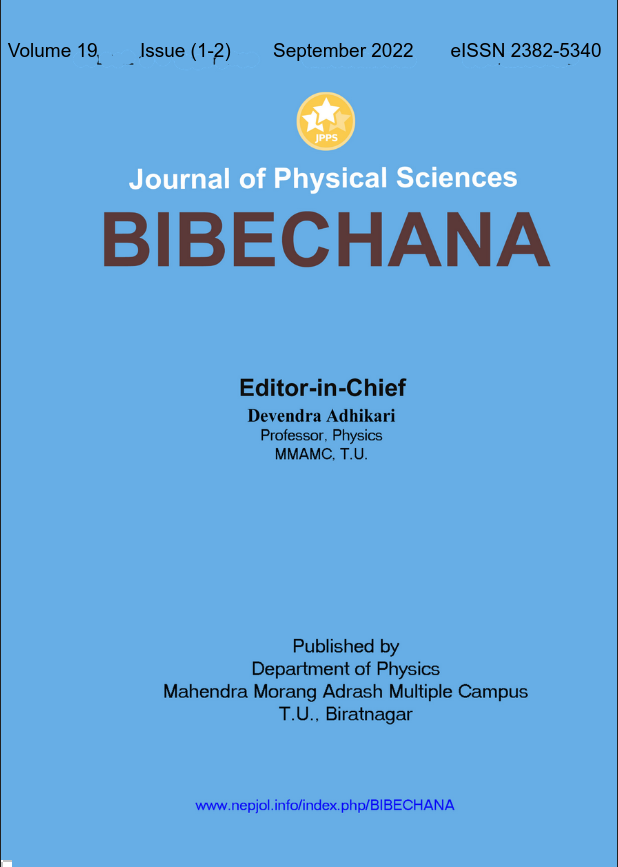Remediation of Bagmati River water using activated carbon from Macrotyloma uniflorum (gram horse) seed
DOI:
https://doi.org/10.3126/bibechana.v19i1-2.46435Keywords:
Activated carbon, Gram horse seed, remediation, water pollutionAbstract
Remediation is a technique that facilitates the removable of pollutants from contaminated water. Activated carbons were prepared from indigenous Macrotyloma uniflorum (gram horse) seed using orthophosphoric acid as an activating agent. The chemically activated gram horse seed powder was carbonized using muffle furnace and characterized using thermo-gravimetric analysis (TGA), x-ray diffraction (XRD), Fourier-transform infrared spectroscopy (FTIR), Boehm titration, methylene blue and iodine numbers. XRD and FTIR spectra indicated that the surface of amorphous activated carbon consisted of acidic and basic functional groups which efficiently adsorb pollutants from the polluted river water. The observed methylene blue and iodine numbers suggested that an impregnation ratio of 1.26:1, three hours of carbonization duration and carbonization temperature of 300 °C were the optimum conditions for the development of micro and mesopores on the surface of the activated carbon prepared from gram horse powder. The maximum adsorption capacity of methylene blue was 312.5 mg/g and that of iodine was 1006.2 mg/g and specific surface area was 1160.44 m2 /g. The both Langmuir and Freundlich model fit well in the methylene blue adsorption. A simple column filtration was used for the purification of river water. Most of the observed water quality parameters of the sample collected from the Bagmati River exceeded the limit recommended by WHO. However, after treatment with gram horse activated carbon, concentrations of measured parameters were reduced to WHO recommended value. More than 60% of the hardness, sulphate and phosphate concentrations were removed and more than 40% of alkalinity and chlorine demand were reduced by activated carbon. Based on the results it is considered that activated carbon from gram horse seed can be an effectively used as bio-adsorbent for the remediation of highly polluted river water.
BIBECHANA 19(2022)170-183
Downloads
Downloads
Published
How to Cite
Issue
Section
License
Copyright (c) 2022 Mandira Pradhananga Adhikari, Janak Raj Bhatt

This work is licensed under a Creative Commons Attribution-NonCommercial 4.0 International License.
This license enables reusers to distribute, remix, adapt, and build upon the material in any medium or format for noncommercial purposes only, and only so long as attribution is given to the creator.




